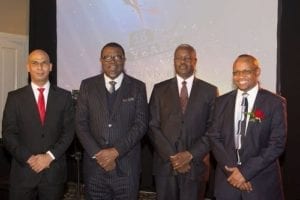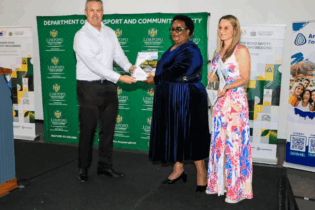The Walvis Bay Corridor Group (WBCG) was established 15 years ago. The occasion was celebrated in Swakopmund on 28 August and was attended by local and international public and private stakeholders, cabinet ministers, presidential advisors, chief executive officers and logistics business owners.
“The WBCG has, to date, made significant progress in positioning Namibia as the number one logistics hub in the SADC region,” said Namibia’s President Dr Hage Geingob. “One important sector selected to boost our industrialisation drive is transport and logistics. I thank the WBCG for the relentless effort it has put into developing routes between our ports and border points, as well as the rest of SADC,” Geingob added. A public-private partnership, the WBCG was established in 2000 to promote the Port of Walvis Bay, the Trans-Kalahari Corridor, the Walvis Bay/Ndola-Lubumbashi Development Corridor, the Trans-Cunene Corridor and the Trans-Oranje Corridor.Corridor volumes have grown substantially in the last 10 years, collectively carrying over 750 000 tonnes per annum. The corridors have also provided N$ 500 million in revenue for the country’s transport and logistics sectors.
The Namibian government has recently decided to invest in all four modes of transport infrastructure by increasing the transport sector budget by 39%. Both Geingob and Minister of Works and Transport, Alpheus !Naruseb, have revealed that plans are underway to revamp Namibia’s rail sector. “In addition to the upgrading of our rail infrastructure, expansion efforts of our railway lines should continue. These include strategic projects such as the railway line between Botswana and Namibia, as well as the railway line between Namibia and Zambia, via the Zambezi region,” Geingob said. “I am confident that the completion of the Port Expansion project at the Port of Walvis Bay by 2017 will go a long way in establishing Namibia as a regional logistics hub and will further support the government’s stated intention to develop an industrialised economy,” contributed WBCG board chairperson, Bisey Uirab.






